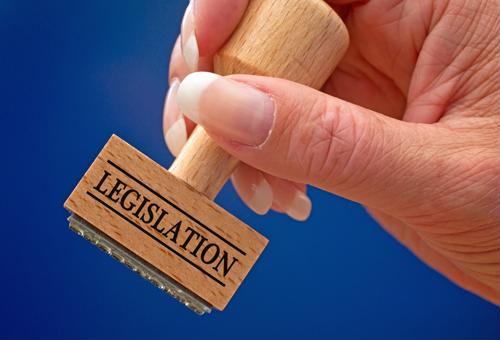Two new fronts have opened in the focus on campaign finance reform. In South Dakota and Washington state, activists are on the cusp of securing ballot positions for omnibus reforms to each state's campaign finance, ethics and lobbying laws. This is just the latest development in a years-long trend of tightening election law compliance standards.
Thanks to an election cycle in which campaign finance reform has taken center stage, candidates and political action committees have been subjected to increased scrutiny and reprisal. Never mind that the failure of some candidates to gain traction despite overflowing campaign coffers proves the limits of big money. The notion that money in politics is excessive and reform is needed always seems to garner attention when raised in a public forum by a politician pandering for votes.
Around the country, campaign finance compliance has grown more complicated and candidates and their support groups should expect an already tense situation to become even more strained with ballot proposals like those in South Dakota and Washington state.
Tackling money in politics at the state level
With the Federal Election Commission deadlocked 3-3 along partisan lines on all of the biggest questions of campaign finance reform, advocates for change have taken their fight to the local and state level. In Washington state, the Washington Government Accountability Act pushes for increased transparency, harsher enforcement standards and bolstered voter participation.
"Both state initiatives call for increased transparency and harsher punishments for violations."
The South Dakota Government Accountability and Anti-Corruption Act has similar goals. It calls for bigger penalties for campaign finance violations, an end to secret donors and a curtailed influence of unlimited lobbyist gifts to state officials.
One organization leads the charge in both states. Represent.Us, a group focused on passing anti-corruption laws across the country, is the principal mover responsible for the South Dakota and Washington initiatives. Thousands of Represent.Us members worked with bipartisan partners to get the reform acts on the ballet.
"If we can win a few states in November, there will be a strong message that voters are taking matters into their own hands on this issue, and that it is the beginning of a similar dynamic that advanced gay marriage and other movements that were driven from the states to Washington, D.C.," Josh Silver, executive director of Represent.Us, told The Huffington Post.
Reform with bipartisan support
Part of what makes reform efforts led by organizations like Represent.Us so powerful (and therefore of concern to PACs and candidates) is their bipartisan support. The Post reported that in Washington, both the liberal-leaning League of Women Voters and the conservative Seattle Tea Party Patriots partnered up to get the initiative on the ballet.
In South Dakota, former state Sen. Don Frankenfeld, a Republican, chaired the campaign to pass reform alongside former state Rep. Darrell Solberg, a Democrat. Frankenfeld told The Post that a vote for serious changes to money in politics in a conservative state like South Dakota proved campaign finance reform wasn't a partisan issue. He hoped other states would take notice.
They have. Arizona, Idaho and Florida will all likely see votes for reform this November. PACs and their candidates need to pay attention. With campaign finance rules tightening and scrutiny at an all-time high, there's no longer any room for error. PAC reporting must be precise and reports must be filed on time. Election law must be followed to the letter. The costs of not doing so are simply too high.

